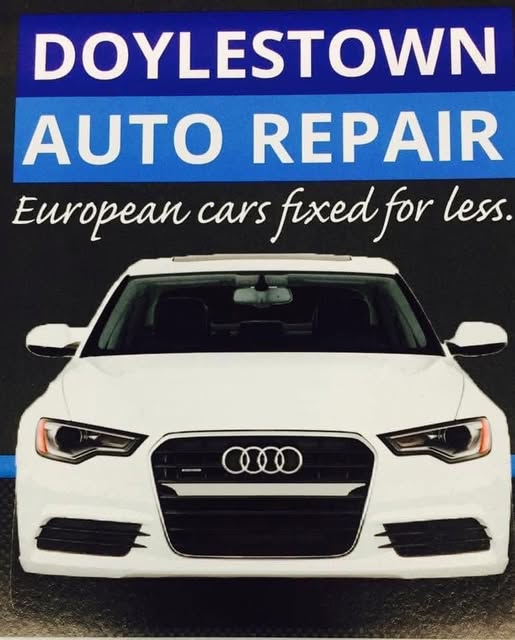In my experience with vehicle repair, I’ve learned that understanding the basics can save you both time and money. I’ve spent countless weekends learning about what goes on under the hood of my car, and I want to share some of those insights with you. Vehicle repair isn’t just about fixing what’s broken; it’s about preventing issues before they arise. By being proactive, we can keep our vehicles running smoothly for years to come.
When I first started my journey into vehicle repair, I was overwhelmed. There seemed to be so much to learn, from the intricacies of the engine to the functions of various components. However, I quickly found that once I grasped the fundamentals of vehicle repair, everything else began to fall into place. It’s about building a solid foundation of knowledge so that we can tackle any problems that come our way.
Understanding Vehicle Repair Basics
What is Vehicle Repair?
In my experience, vehicle repair encompasses all the processes involved in maintaining and fixing automobiles. From minor repairs like changing a tire to major engine overhauls, understanding what vehicle repair involves can help us make informed decisions. I’ve found that knowing the terminology is crucial for effective communication with mechanics and understanding repair manuals. This foundation allows me to feel more confident in my abilities when addressing issues.
Moreover, I believe that the more we understand about vehicle repair, the better equipped we are to recognize when something isn’t right. For instance, if I hear a strange noise coming from my car, instead of ignoring it, I can pinpoint what might be causing it based on my knowledge. This proactive approach has saved me from more significant issues down the line.
The Importance of Regular Maintenance
Regular maintenance is a cornerstone of effective vehicle repair. From oil changes to brake inspections, I’ve learned that staying on top of maintenance can prevent many common issues. I recommend setting a schedule for routine checks and adhering to it. This not only extends the life of our vehicle but also ensures our safety on the road.
I’ve experienced firsthand the difference regular maintenance can make. For instance, I’ve been diligent about changing my oil every 5,000 miles, and as a result, my engine runs smoothly and efficiently. Neglecting such simple tasks can lead to larger, more expensive repairs that could have easily been avoided.
Common Vehicle Repair Issues
Engine Problems
Engine problems are among the most daunting issues we can face as vehicle owners. From my research, I’ve discovered that many engine issues can stem from something as simple as a dirty air filter or low oil levels. I’ve also found that being attentive to warning lights on the dashboard is crucial. Ignoring them usually leads to more significant problems later on.
I’ve had my share of engine troubles, and each time, it’s been a learning experience. For example, one time, I noticed my car was losing power while driving. After some troubleshooting, it turned out to be a spark plug issue. This experience reinforced my belief in the importance of understanding my vehicle and being proactive about vehicle repair.
Transmission Troubles
Transmission issues can be particularly troublesome, and I’ve learned that recognizing the signs early can save us from costly repairs. Symptoms like slipping gears or unusual noises are indicators that something may be wrong. I recommend checking the transmission fluid regularly and being alert to any changes in how the vehicle shifts.
In my case, I learned the hard way about the importance of transmission maintenance. I once ignored a slight delay in shifting, thinking it was nothing serious. Before I knew it, I was facing a hefty repair bill. Now, I make it a point to stay informed and attentive to my vehicle’s needs.
DIY Vehicle Repair Tips
Simple Repairs You Can Do
I’ve found that there are several vehicle repairs that we can tackle ourselves with the right tools and knowledge. Simple tasks like changing wiper blades or replacing a battery are manageable for most of us. I recommend watching tutorial videos online to familiarize ourselves with the steps involved; seeing it in action often makes the process less intimidating.
When I changed my own wiper blades for the first time, it felt empowering. It was a small victory, but it gave me the confidence to try more complex repairs. Plus, I saved money that would have gone to a mechanic for a straightforward job.
Tools Every DIY Mechanic Should Have
Having the right tools can make all the difference in vehicle repair. I’ve learned that a good set of basic tools, like wrenches, screwdrivers, and pliers, is essential. Additionally, I recommend investing in a quality jack and jack stands for safety when working underneath the vehicle.
I’ve built my own toolkit over the years, and I can’t stress enough how important it is to have reliable tools. I remember the frustration of trying to complete a repair without the right equipment. Now, I feel more prepared and less stressed whenever I dive into a project.
When to Seek Professional Help
Recognizing the Limits of DIY
In my experience, there are times when seeking professional help for vehicle repair is the best choice. Some repairs require specialized knowledge and tools that most of us don’t possess. I’ve learned to recognize my limits and not hesitate to consult a mechanic when necessary.
For instance, when my car started making a strange grinding noise from the brakes, I knew it was time to seek help. I could have attempted to fix it myself, but I wasn’t confident in my ability to diagnose the issue properly. This decision saved me from potential danger on the road.
Choosing the Right Mechanic
Finding a trustworthy mechanic can be a challenge, but it’s crucial for ensuring quality vehicle repair. I recommend asking for recommendations from friends and family who have had positive experiences. Additionally, reading online reviews can provide insights into a shop’s reputation.
When I found my current mechanic, it felt like a relief. They explained repairs in a way I could understand and always took the time to answer my questions. Building a good relationship with a mechanic has made my vehicle repair experience so much smoother.
References and Resources
Throughout my research on vehicle repair, I’ve found these resources incredibly valuable. I recommend checking them out for additional insights:
Authoritative Sources on vehicle repair
-
National Highway Traffic Safety Administration (NHTSA)
nhtsa.govThis government site provides essential information on vehicle safety and recalls, making it a valuable resource for any car owner.
-
Edmunds Car Repair Guide
edmunds.comEdmunds offers extensive articles and tips on vehicle repair, covering everything from maintenance to troubleshooting.
-
AAA Auto Repair Resources
aaa.comAAA provides resources and articles on vehicle repair, as well as tips for finding a reliable mechanic.
-
Consumer Reports Auto Repair
consumerreports.orgConsumer Reports offers reviews and comparisons of mechanics and repair services, helping consumers make informed choices.
-
Cars.com Articles
cars.comCars.com features a wealth of articles on vehicle repair and maintenance, offering insights straight from automotive experts.
-
American Automobile Association (AAA)
aaa.comAAA is known for its roadside assistance but also provides a wealth of information on vehicle maintenance and repair.
-
AutoZone DIY Auto Repair
autozone.comAutoZone provides helpful DIY guides and tips for common vehicle repairs, making it accessible for beginners.
-
Carfax Blog
carfax.comCarfax’s blog features articles on vehicle maintenance and repair, as well as the importance of keeping service records.
Frequently Asked Questions
What are the most common vehicle repair issues?
In my experience, some of the most common vehicle repair issues include engine problems, transmission troubles, and brake issues. Regular maintenance can help prevent these problems from becoming serious.
How can I save money on vehicle repairs?
I’ve found that regular maintenance can save a lot of money in the long run. Additionally, attempting minor repairs yourself can also reduce costs. Just be sure to know when to consult a professional.
When should I consider DIY vehicle repair?
I recommend considering DIY vehicle repair for simple tasks like changing oil, replacing wiper blades, or swapping out air filters. These repairs are often straightforward and can save you money.
How do I know if I need professional help for vehicle repair?
In my experience, if you’re dealing with complex issues like transmission or engine repairs, it’s best to seek a professional. Recognizing the limits of your expertise can prevent costly mistakes.
Conclusion
In conclusion, my research on vehicle repair has shown that being informed and proactive can significantly extend the life of our vehicles. I hope this guide helps you navigate the world of vehicle repair with confidence. By understanding the basics, knowing when to seek help, and taking care of our vehicles, we can keep our wheels rolling smoothly for many miles to come.
267-279-9477
Find out more information about “vehicle repair”
Search for more resources and information:


